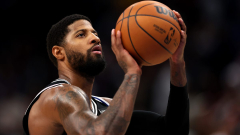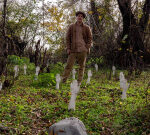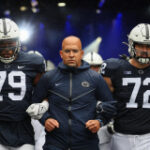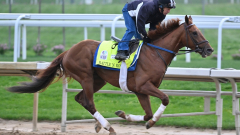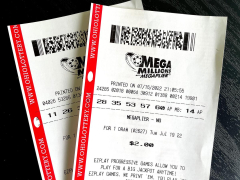I had to raise my hand and surrender the flag and say hey, I need help. That was the first step to getting better. Now I want to get that help to others struggling like I did.
Paul George
| Opinion contributor
A couple weeks back, my youngest daughter came to my wife and me and told us that she heard her own voice in her head. It was mind-blowing to this 5-year-old that she had inner thoughts, and it was the first time she recognized that each of us has an “inner person.” All of us go on that mental journey.
I had my serious journey of losing the mental battle during the NBA season in the pandemic bubble in Orlando. My whole life, I had faced mental challenges and had always felt like I had won that battle, but here I was in the bubble losing.
I didn’t know where to go, what to do or how to cope. It was an experience that I had never had. It was tied into being shut off from the world, isolated and not being able to sleep, along with reading social media posts and seeing hateful comments that started to affect me.
I had to raise my hand and surrender
I felt like I was in a game simulator where every day was the same and I was going through the motions. The stress from that took a huge toll on me.
Opinions in your inbox: Get exclusive access to our columnists and the best of our columns every day
That’s when I had to raise my hand and surrender the flag and say hey, I need help. That was the first step to getting better – admitting that there was something going on. And through my team, I was able to speak with a professional therapist, someone to help me through the stressors I was feeling.
People think that athletes are superheroes, that we are superior and above the world. There is an expectation that we’re going to make heroic plays time after time. The game is built on percentages — you make some and you miss some. But when you miss a shot, millions of fans may go online to clown and laugh about it.
So there is pressure and stress in being an athlete, and there is also a stigma when it comes to athletes and their mental health – even more so in the Black community. That sigma among athletes and more broadly in Black culture is that seeking help is a sign of weakness.
Even if you get beyond that, there is a lack of understanding and awareness on how to get help, who to talk to and who you can trust to open up to about mental challenges.
It’s OK not to be OK: Erasing stigma of mental illness is a big step toward healing
Olympian: Simone Biles is a role model for prioritizing mental health over a medal
Unique elements of stress for athletes
I was listening to one of the greatest mixed martial artists, George St. Pierre, speak not that long ago. He retired at the top of his profession at a young age, and his reason was largely the stress that preparing for fights caused. It reminded me that unless you’re an elite athlete, you probably don’t realize the unique elements of stress that athletes go through.
The first NBA players I heard speak about their personal battles with mental health were Kevin Love and DeMar DeRozan. It caught me by surprise with DeMar, whom I played basketball with in high school and who’s a good friend of mine.
Listening to his struggles made me realize that you should never assume you know what people are going through or what struggles people may be having, and that it’s OK to be open when you need help – that the worst thing to do is to ignore or suppress one’s mental health.
Everyone has the stress of day-to-day stuff. For athletes, there is an expectation to perform at a very high level and to entertain in front of millions of fans, and usually while not being 100% healthy. That stress can get to you, and it can break you sometimes in clutch moments. But that’s where you have to get that mental toughness and learn that mental toughness.
Mental health accommodations: Authorities violated law and human decency by forcing Osaka out of the French Open
Racialized culture: Black women are resilient, but society pathologizes them as mentally ill anyway
Seeking help makes you mentally tougher
A lot of people think that you are not mentally tough if you seek help, but it’s quite the opposite. You can be a great athlete and mentally tough competitively, but if you know something is going on in your mental health and can seek help, it only makes you stronger.
When you face your mental challenges, it puts you in a space where you see that everyone has something going on, things that they need to deal with or face. No one is bigger than the issues that are going on in their life and it can

